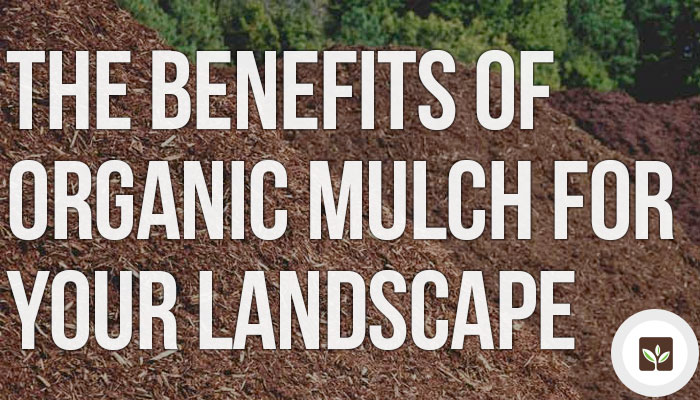
The Benefits of Organic Mulch for Your Landscape
While inorganic mulch such as rock offers its own benefits, especially in terms of suppressing weed and plant growth, it’s simply not the best choice for flowerbeds, gardens, and mulching around trees. That’s because rock gets very hot and may actually harm plants instead of protecting them without supporting healthy plant growth by adding nutrients to the soil.
Organic mulch comes in a huge variety of options in terms of color and species. Depending on the type of mulch you choose, you can enjoy a huge array of benefits for your home or business landscaping, including healthier plant growth, fewer waterings, and reduced soil erosion. Here’s why organic mulch is a great investment for your property.
Improve Playground Safety
HOAs, schools, and municipalities overwhelmingly choose organic playground mulch because it has been shown to reduce the risk of playground injuries. When applied to a depth of 6-12″, specialized mulch for playgrounds absorbs the shock of a fall to protect children at play and reduce liability concerns. It’s even more effective and affordable than rubber playground mulch that may pose a health risk with limited shock absorption.
Suppresses Weeds
Weeds require warm soil and light to grow. Mulch is an effective and natural way to reduce weeds in your landscaping as long as it’s applied to a depth of 2-4″. This can stop most weed seeds from sprouting by blocking the sunlight they need to get the energy to push through the thick mulch layer. While this won’t stop weed growth when seeds are later blown onto the mulch, it does reduce the maintenance your landscape requires. This is especially important for commercial landscaping and HOAs.
Retains Soil Moisture
Mulch can hold about 3.5″ of water for every foot, retaining up to 80% of added moisture in the soil. Mulch works by protecting the soil from direct heat to reduce moisture loss. This makes mulch a low-cost investment to reduce water consumption on your property as plants will thrive with fewer waterings, even in times of drought.
Speed Plant Growth
Mulch helps plants grow faster and hardier by supporting ideal conditions, including adequate soil moisture, warm but not hot ground temperatures, and suppressed weed growth. Studies have shown that mulched plants are more likely to become established and survive subsequent years. By mulching new plantings, your landscape will fill out faster and remain hardy for years to come. For commercial property owners and property managers, this reduces the likelihood of replacing failed plants down the road.
Regulate Soil Temperature
Mulch works to regulate soil temperature by insulating the ground against alternating freeze and thaw cycles that can cause plants to heave out of the ground. Plants usually stop growing when the soil temperature drops below 50 degrees but hot soil can also be too much for plant roots to grow. By insulating the ground, mulch prevents heat from being absorbed on hot summer days only to be released at night. The ground remains fairly warm in the winter and cool in the summer to support healthy root growth.
Reduce Soil Compaction and Erosion
Mulch helps protect your soil and plants from wind and excess water to reduce compaction and erosion that can cause root stress and plant death. Soil erosion refers to water and wind wearing away the topsoil of the landscape while soil compaction happens when the soil is pressed together too tightly, reducing oxygen in the soil and preventing water drainage.
Repel Pests and Insects
Some types of mulch help inhibit insects like cockroaches, termites, and ants to support natural pest control. This can be beneficial for homeowners and commercial properties but it’s especially important for rental properties and multi-family housing which are more at risk of pest problems. While mulch alone can’t stop pests, cypress or cedar mulch do help create a barrier around the home to reduce pests indoors and in the garden.
Adds Nutrients to the Soil
Organic mulch decomposes over time, adding important nutrients to the soil to support healthy plant growth. As the mulch degrades, minerals like nitrogen are released and soak into the soil to fertilize your plants.
Categories: Tennessee Mulch Installation | Tags: Mulch Benefits, Mulch Blowing, Tennessee Mulch Installation